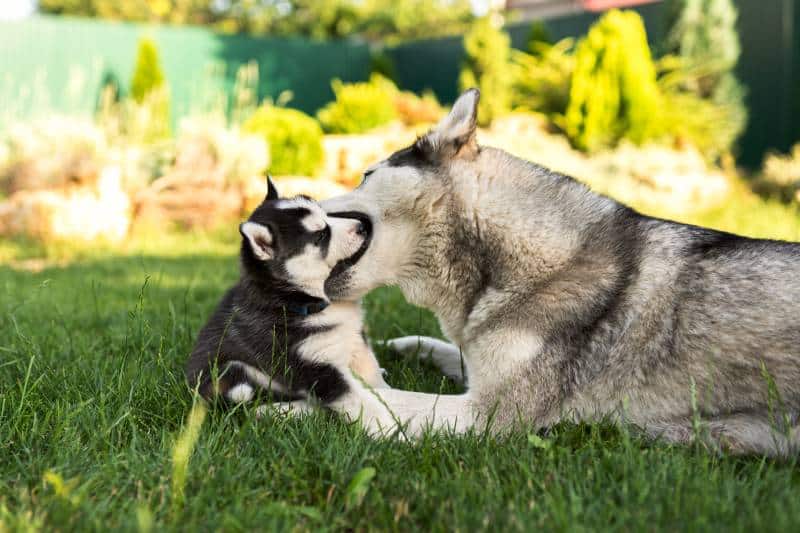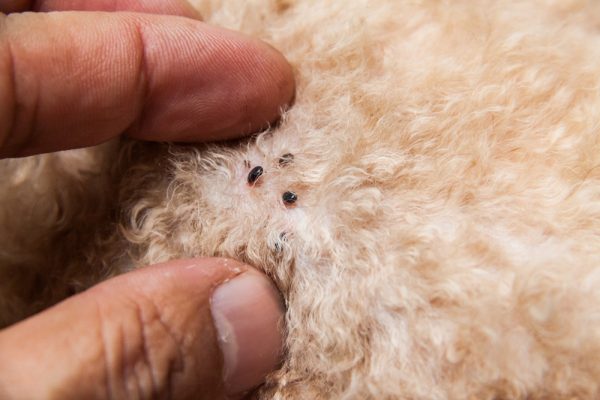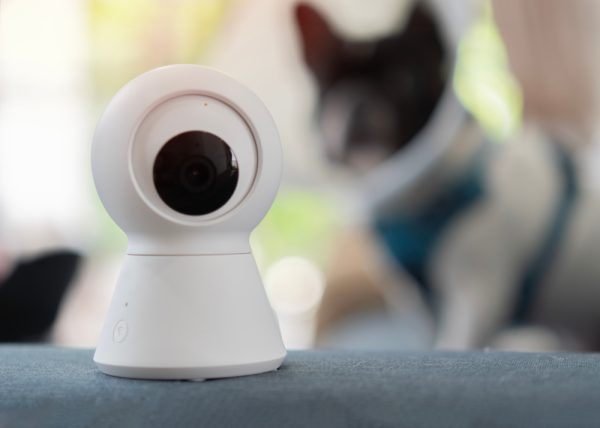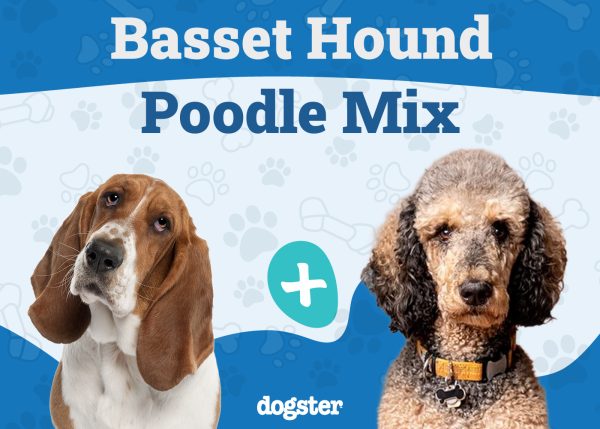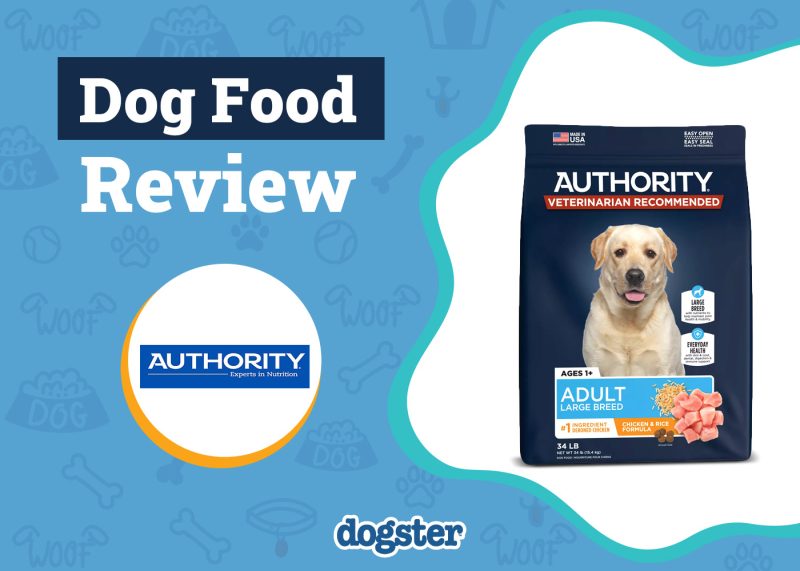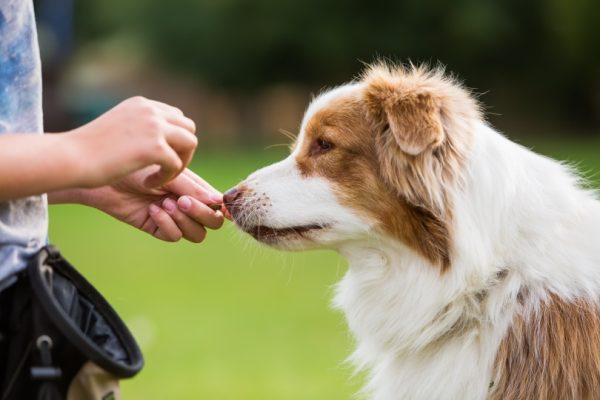In this article
View 2 More +Dogs use their mouths to interact with each other and the world around them. During play, dogs will sometimes “spar” with their muzzles gently. When adult dogs grab puppies by the muzzle, it’s a way of communicating, showing authority, teaching boundaries and bite inhibition, affirming trust, or avoiding a dispute.
Find out more about why adult dogs grab a puppy’s muzzle or another adult dog and what it means.

Early Behavior Between Mothers and Pups
Canine mothers of all types, including dogs, will muzzle-grab puppies to deter them from nursing during the weaning process. This is typically firm but gentle, setting boundaries with the puppies without causing them harm. In the process, puppies learn to respect the muzzle grab and lie down in appeasement.
The muzzle grab is a social behavior that develops early, so it may carry into adulthood. It’s one of the ways puppies learn what’s appropriate when interacting with other dogs, much like how we learn proper manners at a young age.
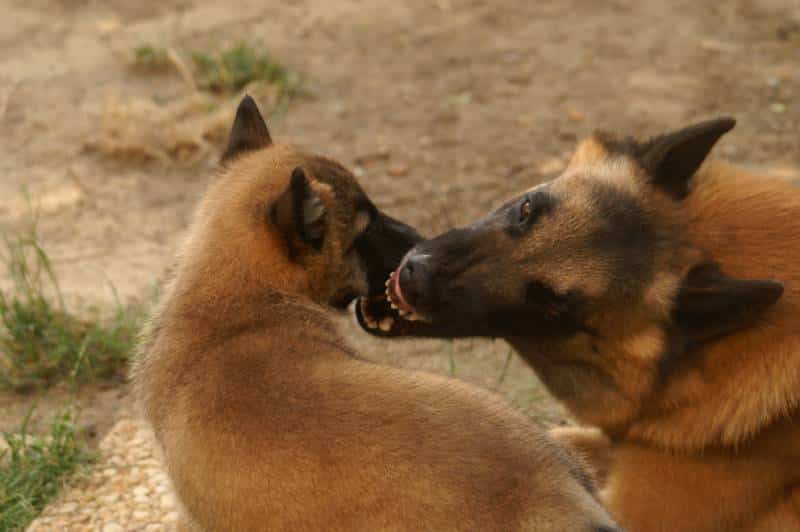
Muzzle Grabs in Adult Dogs
For familiar dogs, grabbing the muzzle is usually a playful behavior that’s all in good fun. In some cases, an adult dog may use the muzzle grab the same way a mother dog does—to reinforce boundaries and proper social behavior.
However, the muzzle grab would not be appropriate for unfamiliar dogs.
During play, dogs demonstrate a lot of behaviors that would be inappropriate in other contexts, such as growling, nipping, pouncing, batting, and wrestling. These are fine when two familiar dogs are playing because they understand that it is not a conflict. With strange dogs, any of these actions can be interpreted as aggression—including the muzzle grab.
For example, we interact with our children, family, and friends differently than we would an unfamiliar person. You may tease a friend or gently shove their shoulder in jest, but doing that to a total stranger would come off as strange, rude, or off-putting.
Should I Grab My Dog’s Muzzle?
Muzzle grabbing may be acceptable from dog to dog, but it’s not an appropriate way for you to interact with a dog. At worst, the dog may take it as an aggressive action and growl, snap, or bite defensively. Otherwise, the dog may show signs of stress, such as yawning, tongue flicks, and averting their gaze.
Whether it is a new dog or your dog, greet them the way they like to be greeted. Don’t grab their muzzle or face, pat their head, or put your face in theirs. Ask the owner permission and how they like to be greeted. When in doubt (when a dog is friendly and looking for interaction), a good rump scratch never fails.
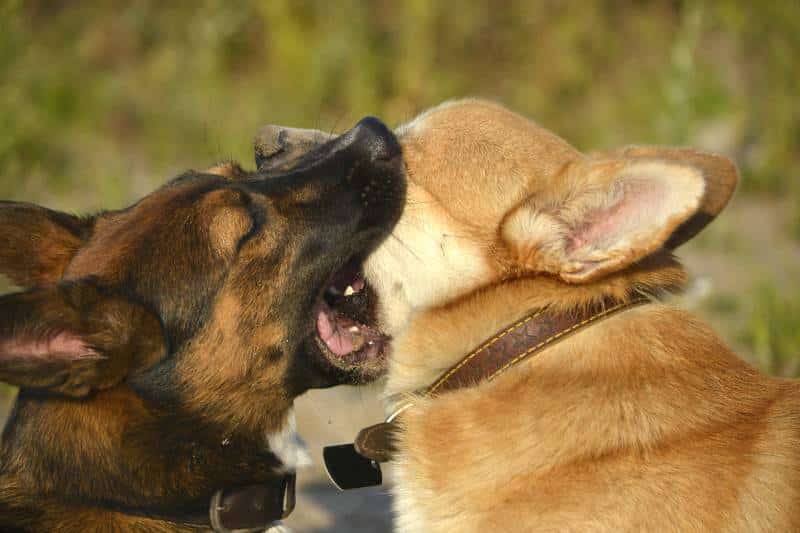

Conclusion
The muzzle grab is an early behavior that develops between a mother dog and her puppies to teach proper social skills. In adulthood, dogs may use their muzzles to roughhouse with other dogs. With younger dogs and puppies, an adult dog may use muzzle grab to tell them they’re behaving inappropriately.
Featured Image Credit: Jen-Nichka, Shutterstock
